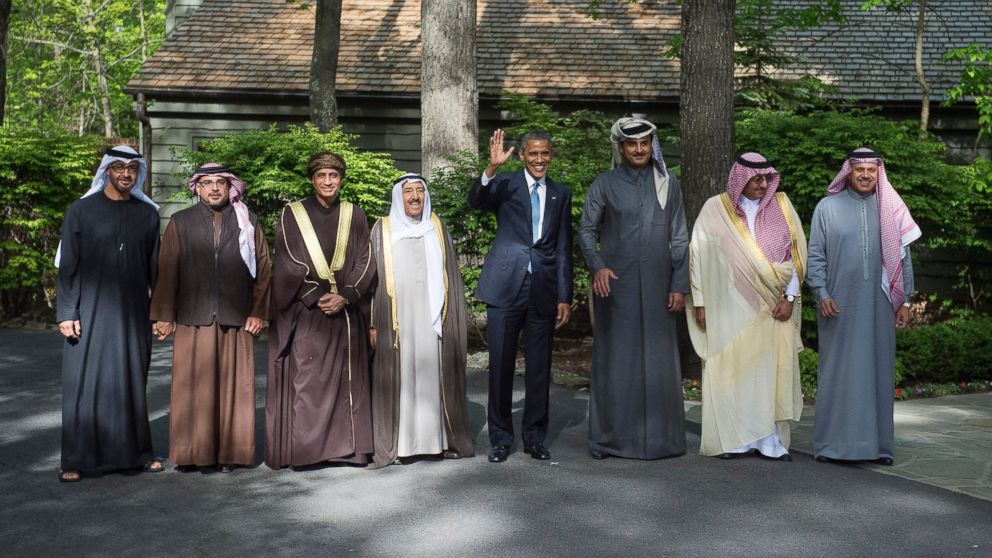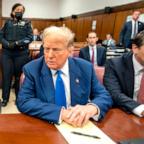President Obama Touts Gulf Alliance Despite Differences on Iran
President also pledges military support of Gulf states.

CAMP DAVID, Md. — -- President Obama stopped short of saying the Persian Gulf nations he hosted here at Camp David support negotiations with Iran over its nuclear program, but indicated that they understood it was in their own interest.
His comments came at the end of a marathon day of meetings with representatives from six Gulf countries that are skeptical of a deal that could make Iran a more powerful regional player that might be more capable of challenging the Sunni Gulf nations.
“I'm pleased that here at Camp David, we agree that a comprehensive, verifiable solution that fully addresses the regional and international concerns about Iran's nuclear program is in the security interests of the international community, including our GCC [Gulf Cooperation Council] partners,” he said.
Most of the nations present at Thursday’s summit, including Saudi Arabia, Qatar and the United Arab Emirates, are embroiled in their own disputes with Iran, including a proxy war playing out in Yemen that pits neighboring Saudi Arabia against the Iran-backed Houthi rebels who have taken over the country.
The administration stressed that the summit was convened to discuss the broad strokes of a U.S.-Gulf security relationship going forward, but the key issue on all parties’ minds was the Iran talks -- and White House officials briefed the Gulf representatives on negotiations during a morning meeting.
The president said the U.S. pledged to defend its Gulf allies in the event of “external threats” to their territorial integrity, although his remarks fell short of a formal mutual defense treaty that some Gulf nations had expressed a desire for prior to the meeting.
“The United States stands ready to work with our GCC partners to urgently determine what actions may be appropriate, using the means at our collective disposal, including the potential use of military force for the defense of our GCC partners,” Obama said.
Earlier in the day, Saudi Foreign Minister Adel al-Jubeir also praised the day’s discussions, telling reporters the summit was “unprecedented” and that he hoped it would lead to Gulf states taking their relationship with the U.S. “to an entirely different level going forward over the next decades.”
The president also commented on several domestic issues during a news conference after the day’s meetings, praising the Senate for passing a bill to give him “fast track” authority to negotiate a trade deal without interim input from Congress.
He also rejected the idea that he was in a personal feud with Sen. Elizabeth Warren, D-Mass., over their disagreements on the Trans-Pacific Partnership trade deal. As he did so, he paused for dramatic effect and chuckled before saying the senator’s name -- likely an indirect reference to the fact that Sen. Sherrod Brown, D-Ohio, had called Obama “disrespectful” for referring to Warren by her first name.
“The issue with respect to myself and ... Elizabeth ... has never been personal,” he said.




